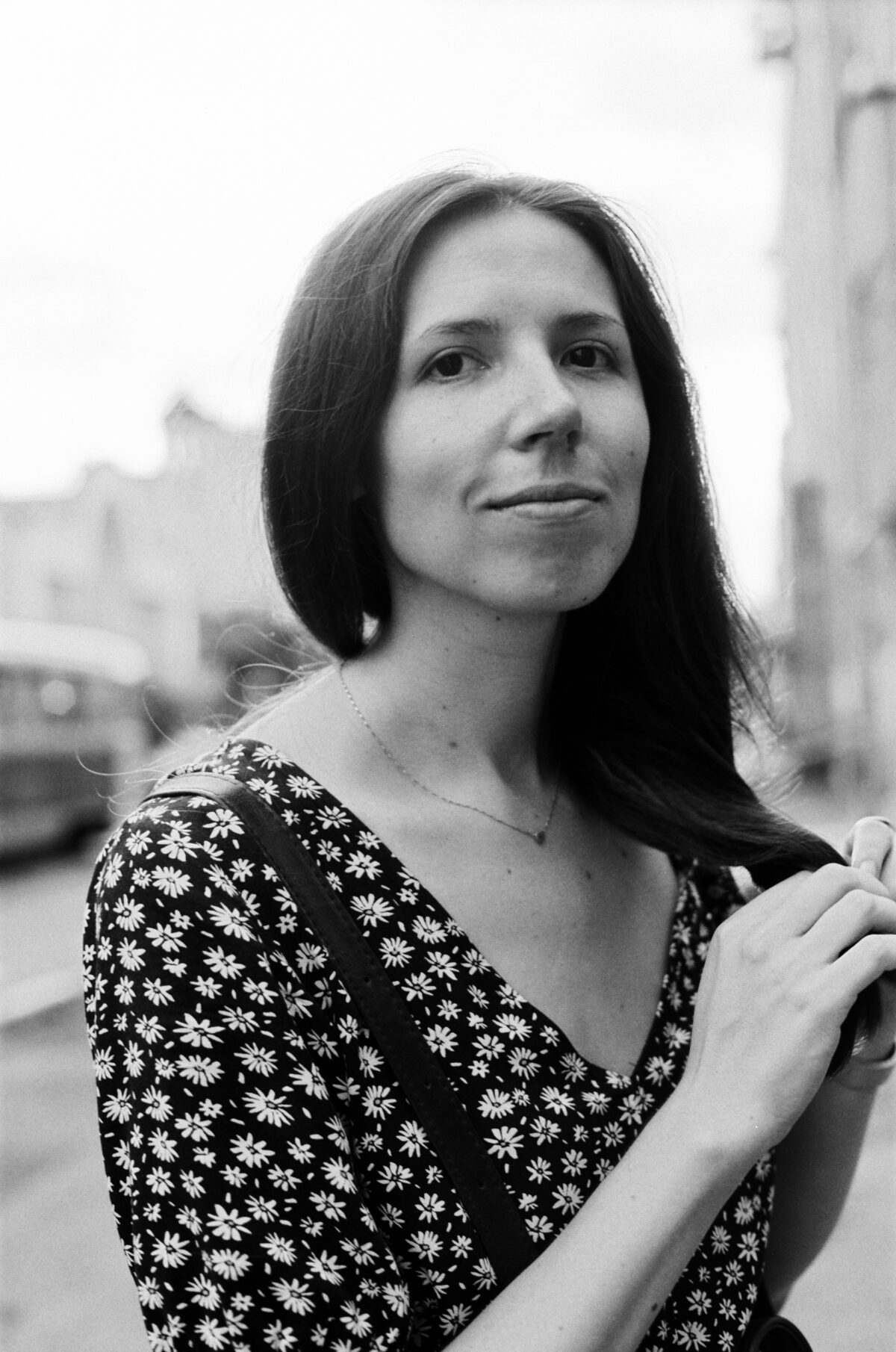Olena Kryvoruchko
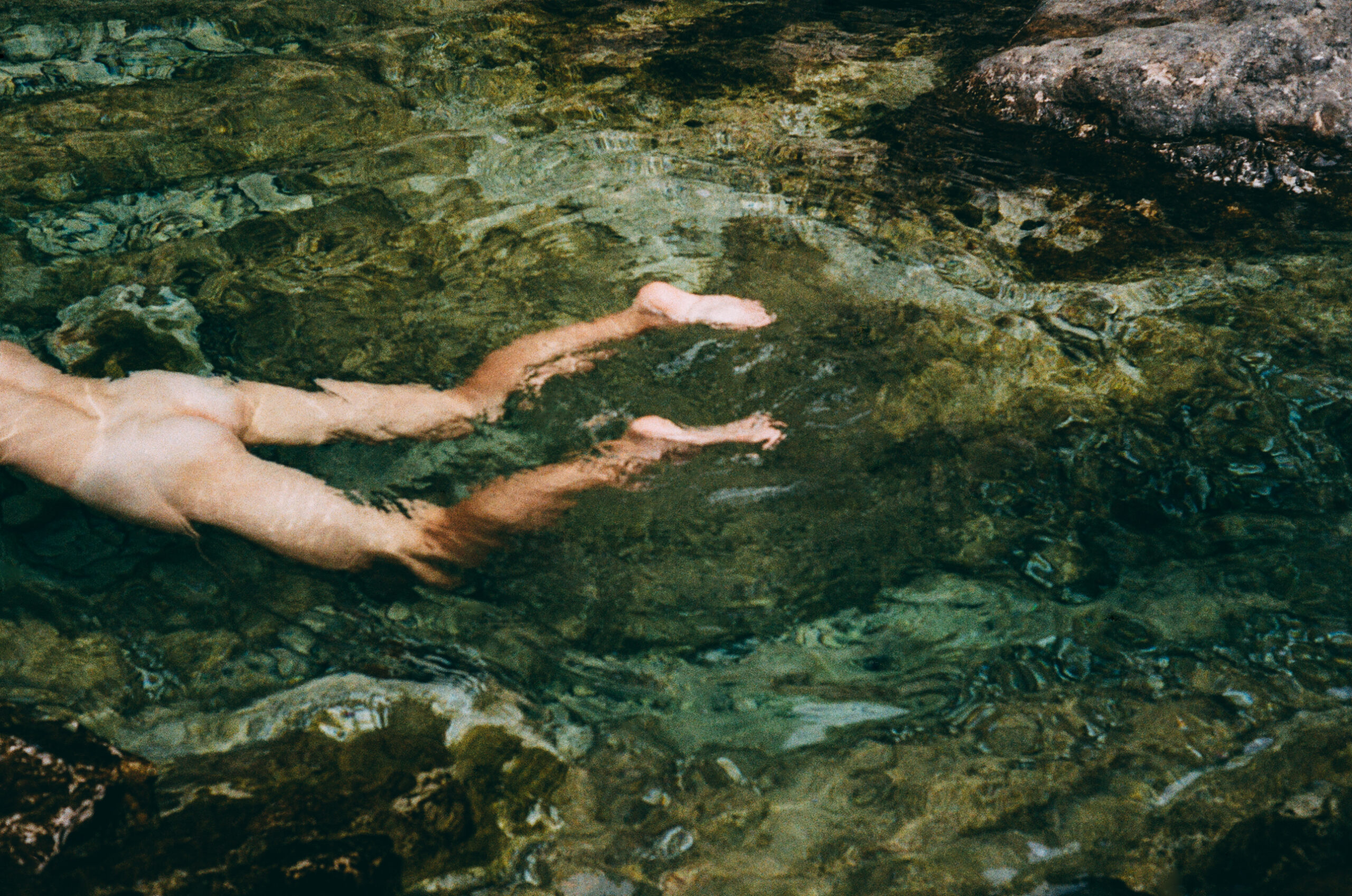
Bye Ukraine, hello Berlin – From hard times, adapting to change and the courage to keep going.
Fotos | Olena Kryvouchko
Wir fragmentieren. Wir setzen uns wieder zusammen. Als Summe unserer Erfahrungen, Erlebnisse, Gefühle sind wir im stetigen Wandel. In keiner Sekunde gleicht unser Wesen seiner eben vergangenen Version. Aber was macht es mit uns Menschen, wenn im Sekundenbruchteil auch deine Heimat fragmentiert, alles Gekannte nach einem Wimpernschlag verändert, zerstört ist? Olena, Fotografin aus der Ukraine, hat uns von ihrer Erfahrung des Krieges erzählt und zeichnet dabei ein Bild von Flucht und abhanden gekommener Freiheit, das aktueller nicht sein könnte.
Ukrainische Fotografin Olena, die nach Berlin geflüchtet ist und über ihre Erfahrungen berichtet.
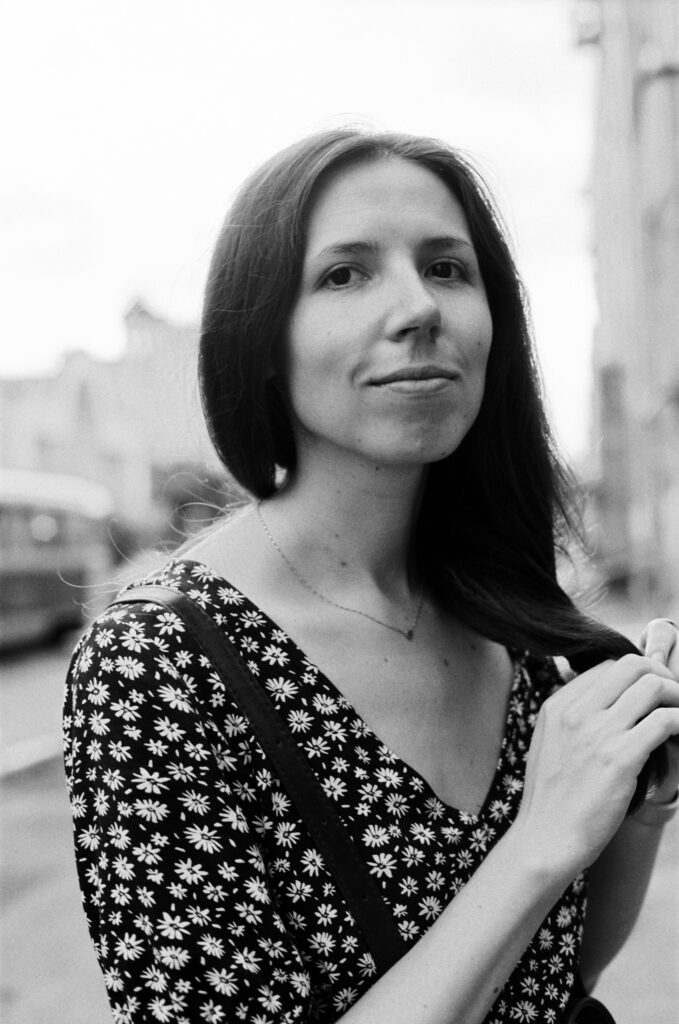
Portraits von Olena selbst
What’s your story as a photographer?
Tell me about yourself is an awkward question for me. I believe that my actions and work speak more truthfully and brighter than words. If we talk about the generally accepted facts that people are most often interested in, they are:
__Originally, I’m from the small town of Marhanets, Dnipropetrovsk region.
__I have been living in Kyiv since 2012.
__In 2018, I graduated from the National Pedagogical University with a master’s degree in Mathematics.
__For several years I worked as a business analyst, and now hold the position of project manager. These skills help me organize not only work projects but also my personal ones.
__As for photography, it didn’t come out of nowhere.
__During my study at university, I attended in parallel an art center, where I communicated with different creative people. I loved being involved with this get-together.
__Also, I tried painting and creating etchings. But in painting, I lacked a complete artistic education and that endurance and concentration that is needed for this creativity. Therefore, I realized it was not mine.
__Etchings I considered more fun, but the process of creating this work was labor-intensive and inflexible – it is desirable to do in the studio. I also said goodbye to this occupation soon.
Photography turned out to be the perfect thing for me. It is not so time-consuming (although I can often spend several days processing pictures), it can give a quick result, it often implies communication with different people and the exchange of emotions (for me this is very important), you are not tied to one place (you can see the plot practically anywhere, tools you can easily carry around the world with you), etc. So I have been photographing for several years and am thrilled with this.
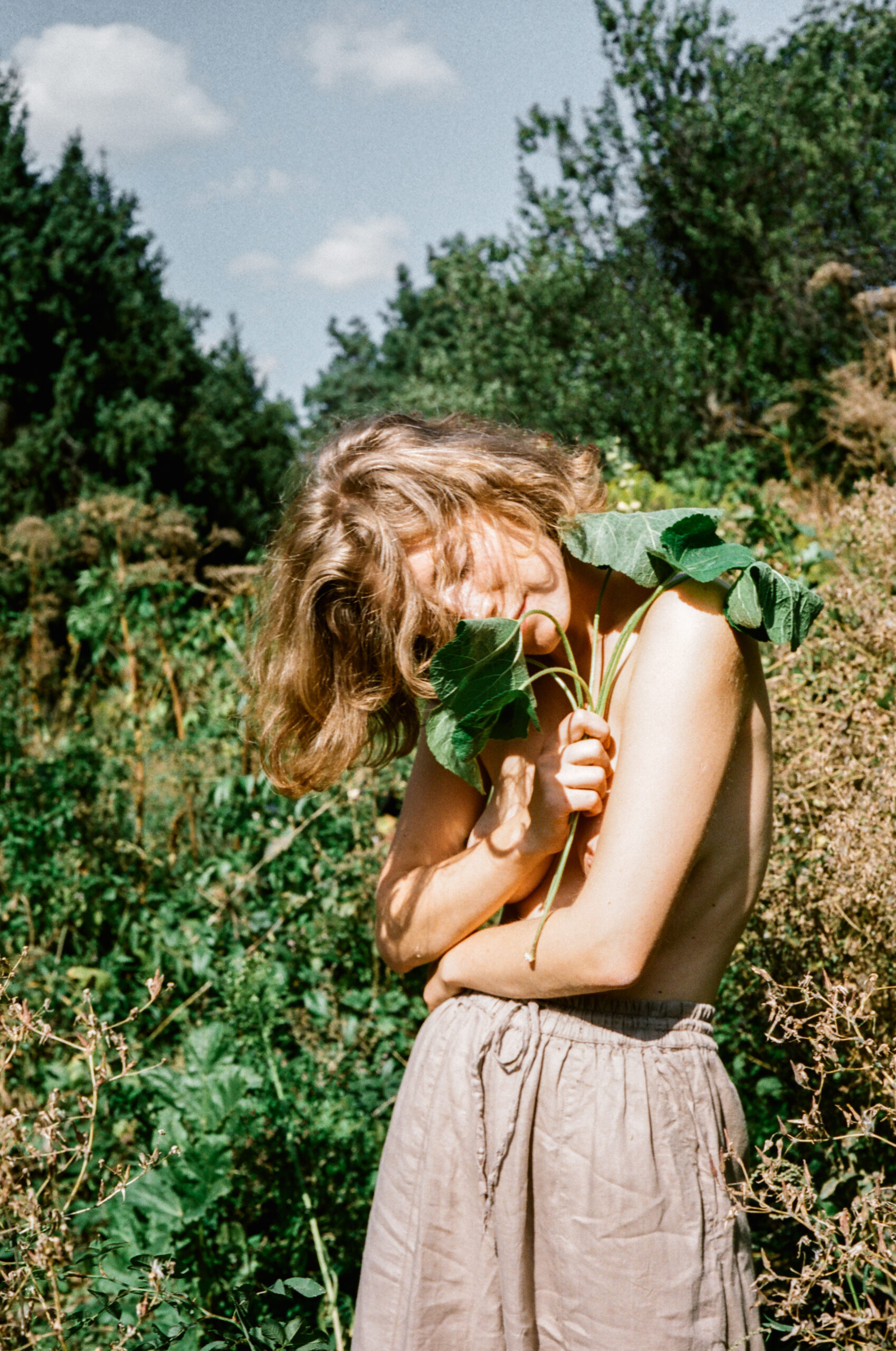
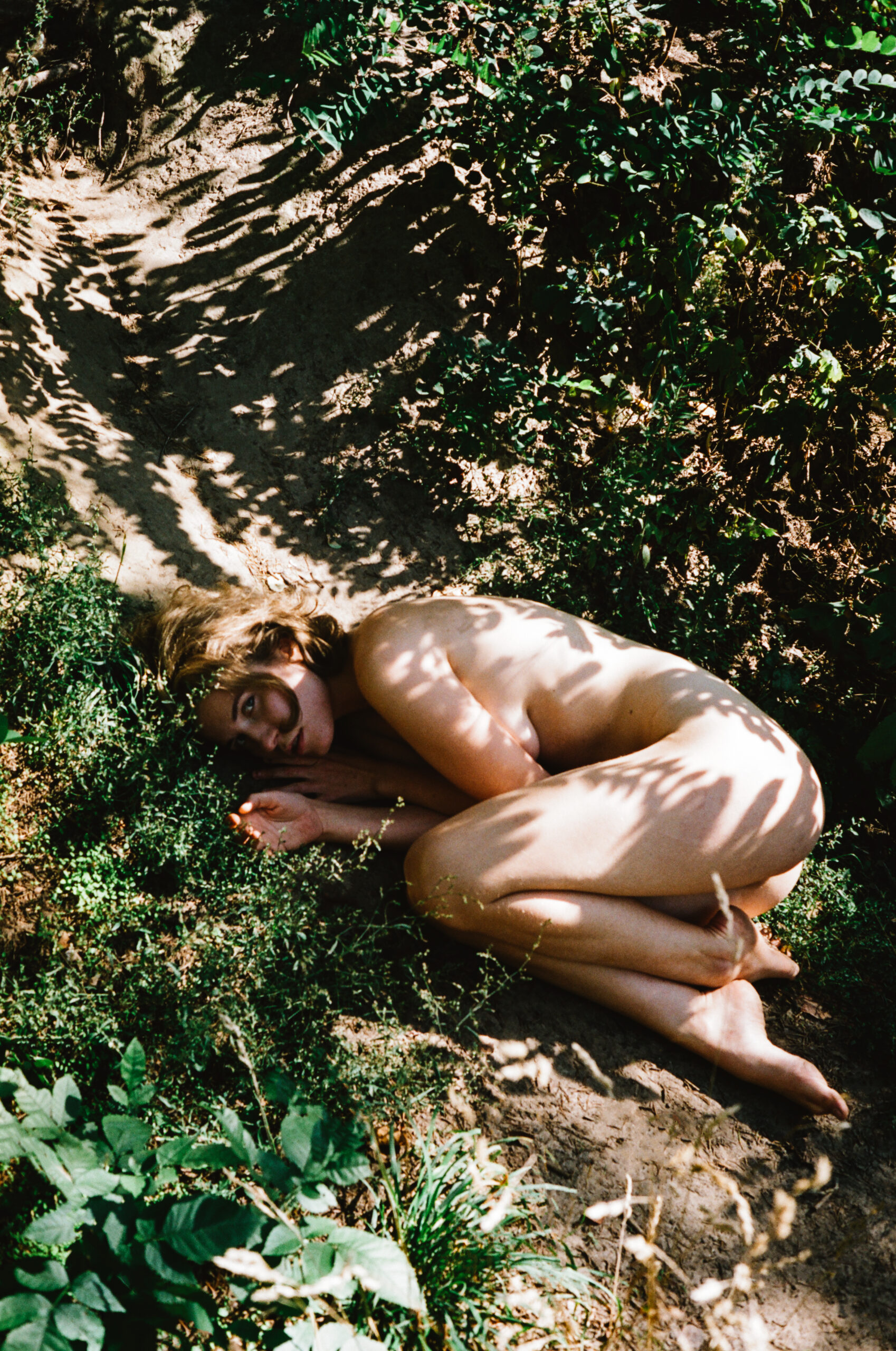
How it feels like to have to leave your country because of this horrible war? What did you experience?
It is morally difficult to leave your homeland and everything that is behind you and just flee. Flee, driven by fear and the instinct of self-preservation in order to stop hearing the sounds of explosions and sirens. I do not feel regret about all the expensive equipment, property, clothes, and other material things that I left. The most painful thing was to say: „See you later [and no one knows when and whether we will see each other again]“ to relatives and loved ones. My boyfriend, mom, grandmother, and almost all of my friends still stay in Ukraine. It’s really good that due to technology I still contact them by phone. But online would have never ever fully compensated for the physical absence of people.
In Germany, people are very kind and helpful. I was very touched by the warm welcome and hospitality. But it’s really hard to start a new life in a new country. Especially when it is an unplanned move and the reason for it is not because you ‚want‘ this, but because you ’need‘ to. I arrived in Germany hoping everything will be over in a week and I will return home. But after this short interval, it became clear that I should stay here at least for a month. And now I live in expectation of Ukraine’s victory in this war and I’m trying to do photography here in Berlin. Photography helps me get a bit distracted and feel normal life.
What’s different in Germany compared to your home country?
There are differences in the mentality of the two nations. To make more proper research on this topic, I really need to live much more time here. But if to tell briefly, contemporary Ukraine is on the way of transformation from a socialist post-soviet republic to a democratic state.
Mostly older generation who have lived most of their lives in the regime were nostalgic for the former USSR. But since the war started this indicator is rapidly declining — by the end of April 2022 it was recorded the lowest ever indicator.
The huge difference or even gap between these two countries I noticed in the level of digitalization. In Ukraine, the online-service sector is at a pretty high level and it is quite easy and fast to make an appointment online with government agencies or a hospital. You can easily open a bank account on the same day in just a few clicks. And for this, it is unnecessary even to leave the house and wait a few weeks. We have „Diia“ ( lit. ’Action‘) – a mobile app, a web portal, and a brand of e-governance in Ukraine. Launched in 2020, the app allows Ukrainian citizens to use digital documents in their smartphones instead of physical ones for identification and sharing purposes and allows access to over 50 governmental services. Since the beginning of the coronavirus pandemic, education has also moved online. Now, when many families have gone abroad to escape the war, their children still study in Ukrainian schools online.
There are differences in the approach to housing. Most Ukrainians don’t want constantly rent an apartment and raise children on the landlord’s property. And the desire to buy your own home is justified — in a few years, you can actually buy an apartment in Ukraine. In Germany, housing is very expensive, so it is normal to rent an apartment for a long period.
Because of the Soviet past again, mostly the older generation has a misunderstanding and rejection of the LGBTQA+ community and they are close to the values of „traditional family“. For example, my friend came out to his mom as gay at the beginning of the year. She took this information with a pinch and advised to “forget about this nonsense and find a normal woman”. But among young people, the mood is very tolerant and progressive. Also, it has increased support for LGBTQA rights since 2014. Parliament passed legislation in 2015 to ban discrimination in the workplace, but it still does not allow for same-sex marriage or the adoption of children.
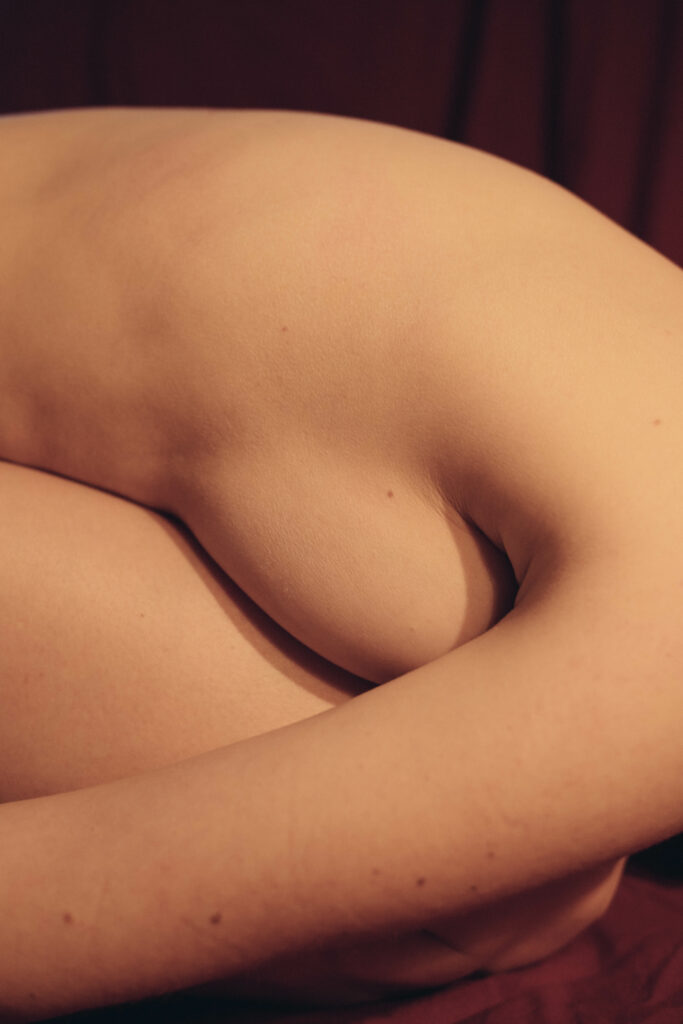
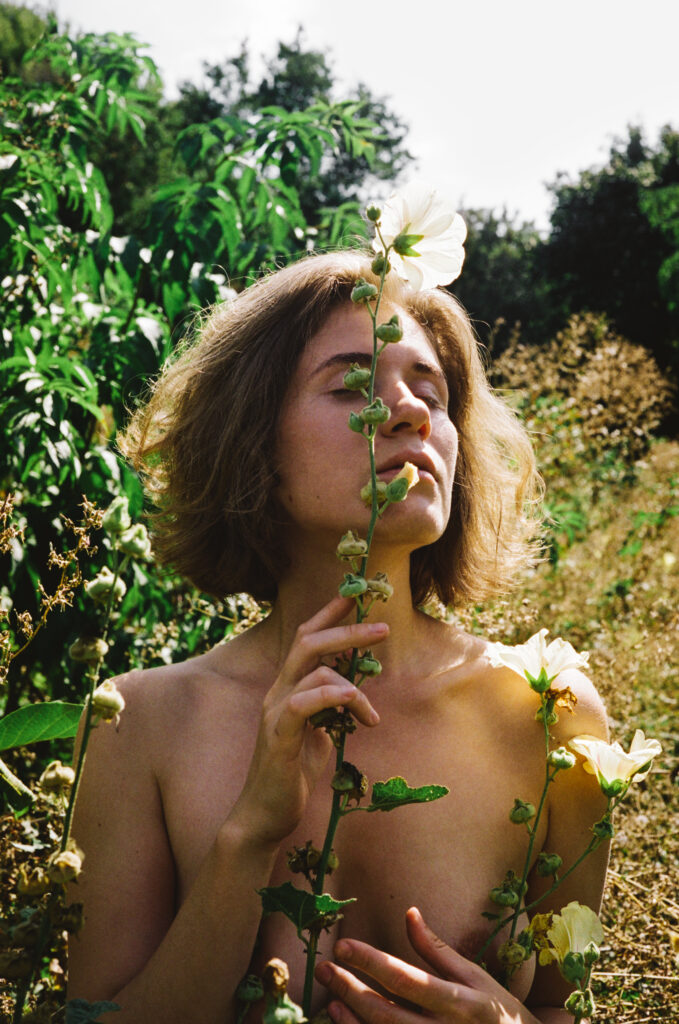
How is it to be a woman in Ukraine?
In my country, there are still remnants of the influence of the Soviet past on what role a woman should take in society and in the family. But this is changing rapidly in the last several years. For example, currently in the Armed Forces of Ukraine, we have much more women which is 15.6% of the total number of military personnel. This is one of the highest shares among of NATO countries‘ armies. Also, not so much time ago, at the state level, women were allowed to occupy professions that were previously available only to men.
In general, it is beautiful to be a woman in Ukraine.
Olena
Credits
Fotos – Olena Kryvoruchko
Text – Olena Kryvoruchko
Redaktion – Christin Köhler
Amazone
Web – Olena Kryvoruchko | Photographer
Instagram – @kryvoruchkoele

